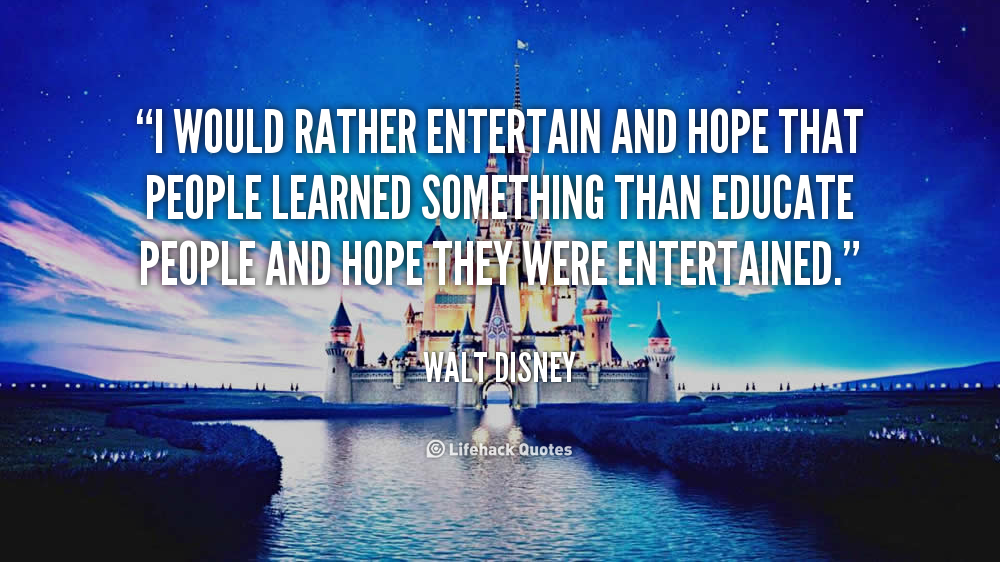
TED is a nonprofit devoted to spreading ideas, usually in the form of short, powerful talks. But what does the acronym TED, and its spin-off TEDx, stand for? We explore the philosophy, the meaning and the spirit behind the TED conferences, one letter at a time.
—
E is for …
entertainment noun en·ter·tain·ment \ en-tər-ˈtān-mənt \ : agreeable occupation for the mind; something affording pleasure, diversion, or amusement, especially a performance of some kind
“A window—it’s more entertaining than TV. Just ask a cat looking out, or a man looking in on a life he desires.”
―Jarod Kintz
“Entertainment is temporary happiness, but the real happiness is permanent entertainment.”
―Amit Kalantri
“Reggae has a philosophy, you know? It’s not just entertainment. There’s an idea behind it, a way of life behind the music, which is a positive way of life, which is a progressive way of life for better people.”
―Ziggy Marley
We begin with two observations that, though perhaps commonplace, ought to be kept in mind. First, entertainment often does more than entertain — or, put differently, entertainment functions are often intertwined with nonentertainment functions. According to Staiger, children and teens spent more time at movies during World War II in part because mothers were working, so theaters became de facto day-care centers. Katz and Foulkes similarly observe that families may watch TV together in order to bond.
Second, and regrettably, “There are few things less entertaining than trying to define mass entertainment.”
[source: Stephen Bates and Anthony J. Ferri, “What’s Entertainment?”]
TED talks are nothing if not entertaining. See for yourself at TEDxSalem: Tickets are available for $50 for general admission and $40 for students at https://tedxsalem2015.eventbrite.com. One ticket includes a full day of talks, entertainment, recess activities, swag, snacks, lunch and an after-party.

